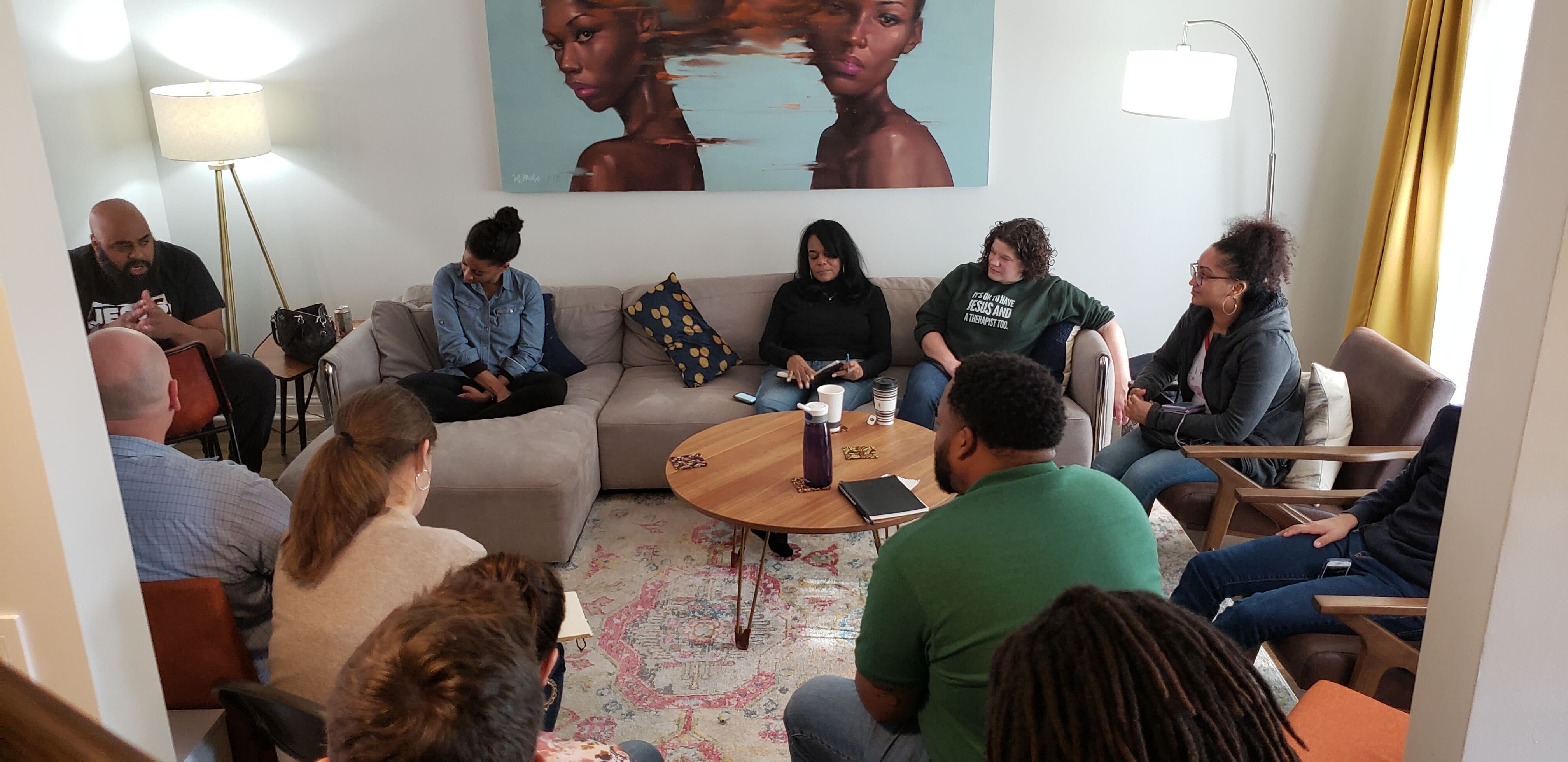Recently, by God’s grace, our church celebrated five years of public ministry in Detroit. I’m not nostalgic, but this time of year always stirs up my heart and mind. Paradoxically, my planting journey has felt like 20 minutes and 20 years at the same time. In five short years, we’ve seen baptisms, returning prodigals, people wandering away, deaths, other churches planted through our ministry, a global pandemic—and I’ve seen many of my dreams die. Here are five lessons I’ve learned so far.
1. Some family and friends aren’t forever.
Every church planter has heard the painful truth that some who started with you will leave. Despite this inevitability, the sting remains and cuts deep. As I stood before our congregation on our anniversary service fighting back tears, I saw just a handful of people from our original service five years prior.
We’ve sent people out to plant churches, and we’ve been ghosted. We’ve said hopeful gospel goodbyes and cried over abrupt departures. We’ve seen people drift away slowly, leaders bail without warning, and experienced people doing hurtful things on the way out. But no matter how people leave, they ultimately belong to our Chief Shepherd. We don’t own the rights to anyone; Jesus does. They belong to him because he died to save them, and we must entrust them to their Creator.
2. The Lord is not obligated to meet my expectations and dreams.
It’s laughable and ironic how much my church doesn’t look like what I dreamed. When I first began imagining the church I wanted, it was all African-American, with a few hundred people and an awe-inspiring facility. The local body I serve is wildly different from what I originally desired. Looking back, I realize I subconsciously thought the Lord was obligated to fulfill my dream. It was very subtle, but after leaving a stable career, accepting a residency making less money, having to raise support, and moving my family to one of the most violent zip codes in America, I felt entitled. Deep down, I felt God owed me. I learned that he is planting not my “dream church” but the church he planned in eternity’s past—and this is good news. Condividi il Tweet
I was abruptly awakened from my dream, but I truly love my church. I’m exceedingly grateful for what the Lord is doing and has done. I learned that he is planting not my “dream church” but the church he planned in eternity’s past—and this is good news. I had to allow some of my dreams to die to embrace the local church God intended.
3. Treasure and cultivate real friendships.
I recently received a text from a friend. He didn’t know it, but he was a means of grace to me that day. I was struggling—physically exhausted, mentally foggy, and emotionally low. After encouraging me with wise words, calling me to rest in my Savior, and cracking a few jokes, he asked, “how can I be praying for you?” This fifteen-minute text exchange was refreshing and life-giving; it changed my disposition that day.
We often get so bogged down with the requirements and pace of ministry that we’re like my five-year-old on her tablet. She used to get so fixated on her show that she’d ignore the low battery warnings until it shut down. Having peers and mentors is imperative because we sometimes can’t see when our battery is low, or we’re too weak to charge ourselves. Prioritize, preserve, and pour into these relationships. You need to be pastored and have the gospel planted deep in your heart.
4. Christ and change are the only constants.
I wish I could give you a narrative that belongs on a grand stage at a big conference. I wish I could say our journey has been “the church plant starts, grows, and continues to grow.” But much like Michigan roads, our journey has been filled with potholes and detours instead of smooth pavement.
Earlier this year, I hit the wall because the only constant was uncertainty. Decision fatigue hovered over me like an impending storm cloud. On top of the constant COVID-19 changes, the collapse of our facility purchase left us scrambling to find a place to gather, and a key ministry leader suddenly stepped away. During this crazy season, I learned to lean more heavily on my team. Their wisdom, input, and counsel have lightened my burden greatly. If you don’t have a staff or leadership team yet, gather trusted, wise, and godly men and women as a board to provide you with the necessary assistance. It’s not my strengths, gifts, or abilities but Jesus’s powerful salvation that undergirds and strengthens my ministry. Condividi il Tweet
5. I’m weak, but God is strong.
I thought I was well-versed in my shortcomings and frailty when we began planting Cornerstone in January 2016. Now, five years later, I see that I only had a view of the top of my limitations iceberg. I’m weaker than I realized.
But the good news is that Cornerstone doesn’t need a “strong” pastor because we have a strong Savior and Lord! It’s not my strengths, gifts, or abilities but Jesus’s powerful salvation that undergirds and strengthens my ministry. While it’s humbling and often humiliating to face your weakness, it will leave you all the more awestruck by our Lord’s resurrection power.
The Lord has demonstrated his constant faithfulness to our church through five years of joy, sorrow, trouble, and change in ministry. May he lead us forward into the next five years and beyond, multiplying fruit in and through his church for his glory.










